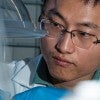
Funding flows into liquid fuel strategy
The National Science Foundation awards a $2 million collaborative grant for the development of methods to convert carbon dioxide into liquid fuels.

Funding flows into liquid fuel strategy
The National Science Foundation awards a $2 million collaborative grant for the development of methods to convert carbon dioxide into liquid fuels.
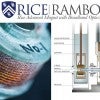
Rice’s RAMBO-II: A sequel better than the original
First-of-its-kind spectrometer is getting stronger magnets, wider range of lasers.
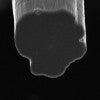
No limit yet for carbon nanotube fibers
Rice University researchers report advances in their quest to make the best carbon nanotube fibers for industry.
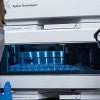
Engineers enlist fungi to advance against disease
Rice University engineers find the mechanism in fungus that produces a potential drug scaffold. The National Institutes of Health awards a multiyear grant to the lab to continue its work.

People, papers and presentations July 27, 2020
Haotian Wang, the William Marsh Rice Trustee Assistant Professor of Chemical and Biomolecular Engineering, is among 59 early-career scientists selected to take up the challenge of greenhouse gas accumulation in Earth's atmosphere and oceans in Scialog: Negative Emissions Science
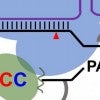
‘Bystander’ Cs meet their match in gene-editing technique
Biomolecular engineers at Rice have developed new tools to increase the accuracy of CRISPR single-base editing to treat genetic diseases.
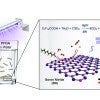
Boron nitride destroys PFAS 'forever' chemicals PFOA, GenX
Rice chemical engineers discovered a photocatalyst that can destroy 99% of the “forever” chemical PFOA
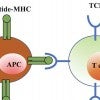
‘Relaxed’ T cells critical to immune response
Rice University researchers model the role of relaxation time as T cells bind to invaders or imposters, and how their ability to differentiate between the two triggers the body’s immune system.
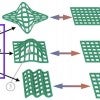
Lab makes 4D printing more practical
Soft robots and biomedical implants that reconfigure themselves upon demand are closer to reality with a method developed at Rice to print shapeshifting materials.
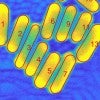
New tool helps nanorods stand out
Rice scientists introduce an open-source method to simplify nanoparticle analysis using scanning electron microscope images.
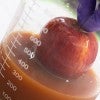
Egg-based coating preserves fresh produce
Eggs that would otherwise be wasted can be used as the base of an inexpensive coating to protect fruits and vegetables, according to Rice University researchers.

Meet the Rice alum in charge of NASA's prelaunch quarantine program
NASA flight surgeon Rob Mulcahy '08 was in charge of the prelaunch quarantine -- a precaution doubly important during the COVID-19 pandemic -- for the space agency's first manned mission to launch from the U.S. in almost a decade.
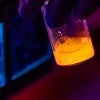
Exotic nanotubes move in less mysterious ways
Rice University researchers capture the first video of boron nitride nanotubes in motion to prove their potential for materials and medical applications.

Rice's COVID-19 research fund awards final grants
The Rice University COVID-19 Research Fund Oversight and Review Committee funds nine more faculty teams working to mitigate the effects of the new coronavirus.

Ocean virus hijacks carbon-storing bacteria
Rice scientists are analyzing the role of ferredoxin proteins produced when viral phages alter electron transfer in ocean-dwelling bacteria that produce oxygen and store carbon.